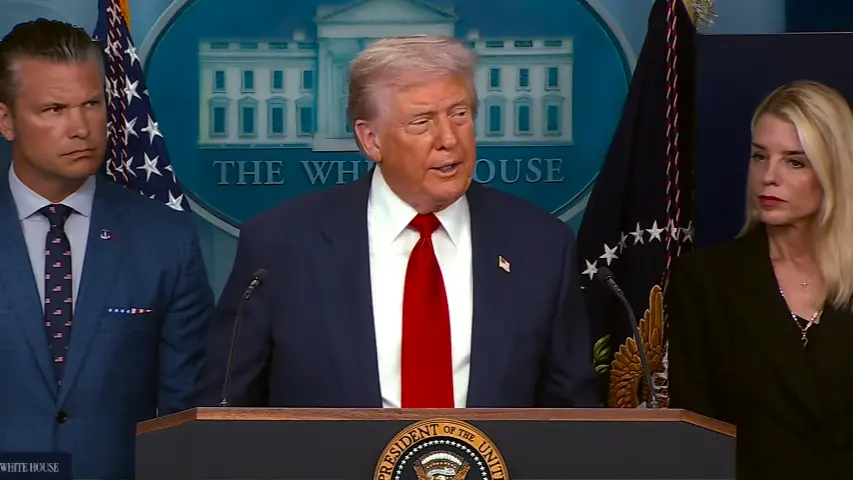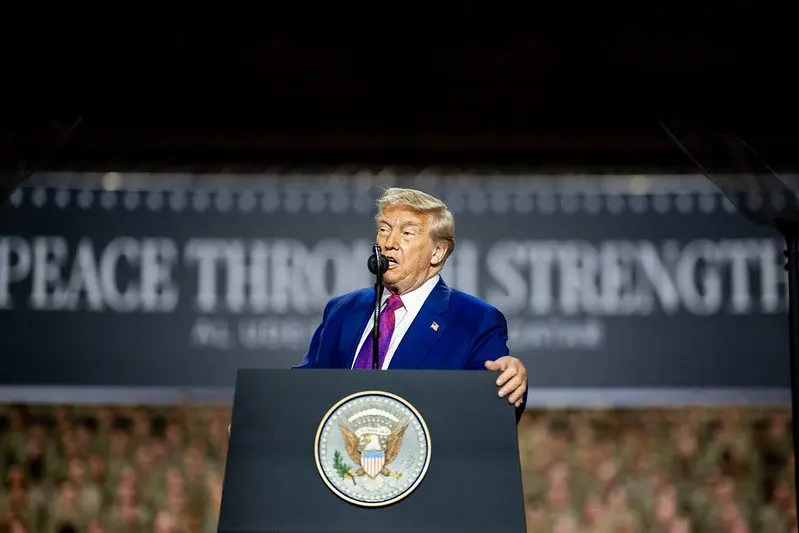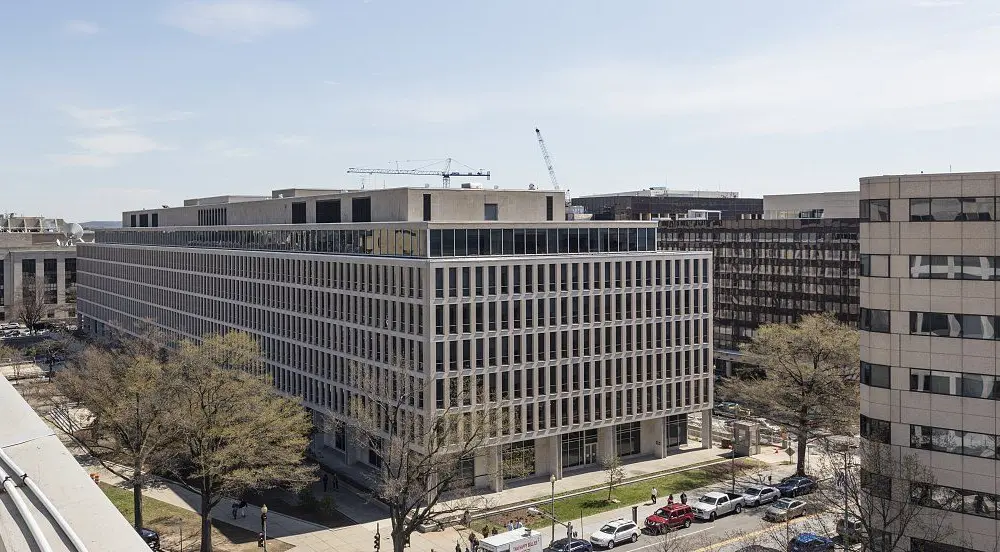WASHINGTON, D.C. – A proclamation signed by President Donald Trump last week seeking to restrict entry of non-immigrant workers to the U.S. and apply a $100,000 fee to H-1B visa applications created confusion and concern within the tech industry over the weekend.
Immediately after Friday’s announcement, companies of all sizes, including tech giants Microsoft and Amazon and smaller startups, began calling any workers with H-1B visas who were traveling outside the U.S. to return to the country by the proclamation’s deadline of midnight Sunday.
“It’s been seismic, to say the least,” said Nicole Gunara, a principal immigration lawyer with Manifest Law. “People are trying to fight to get out of planes, cancel flights, fly back as quickly as possible, privately chartering boats and planes in the night.”
The Trump administration has since clarified that only new H-1B visa applications would be subject to the fee. Officials also said the proclamation would not impact the ability of visa holders to travel to and from the U.S., but the announcement sent many companies and their foreign workers into a “panic,” Gunara said.
H-1B visas are given to non-immigrant foreign candidates with college degrees who fill highly skilled positions that U.S. companies struggle to hire for. Each year, the U.S. caps the number of new visas to about 85,000, and there were about 730,000 H-1B workers in the U.S. at the start of 2025.
The visas have traditionally cost between just under $1,000 to a few thousand dollars a year, and are paid by the companies. Companies must pay their H-1B workers at least an average wage for their geographical area, to not undercut the cost of wages for other workers. In 2023, the median wage for H-1B workers was $118,000, on par with the 90th percentile ($121,000) of all U.S. wages.
Many of these roles are in information technology, with Amazon, Microsoft and Meta leading the top Fortune 500 companies with the most H-1B visa workers, with 12,391 workers, 5,189 workers and 5,123 workers respectively. About 70% of H-1B visas went to Indian workers and nearly 12% went to Chinese workers last year.
Trump’s proclamation calls for American companies to rely on American workers for these roles, saying there is “abuse” of the H-1B program. But domestic educational institutions just aren’t preparing Americans for the type of skilled labor that many of the tech companies are seeking, said Elizabeth Ricci, immigration attorney and partner at Rambana & Ricci.
Trump has cut science funding to its lowest level in at least 35 years, and his cuts to the National Science Foundation and other research organizations are having direct effects on K-12 and college tech education.
“It’ll have a huge effect,” Ricci said of the cost of fees on the industry. “We can’t have it both ways, where we’re not educating the people we need and also having such an incredibly high fee to be able to get a visa to bring someone in to do work for places like Apple and Google.”
U.S. companies have faced a shortage of skilled tech workers for years. Recruiting and talent firm Robert Half reported 87% of tech leaders said they faced challenges finding skilled talent earlier this year. And Silicon Valley tech giants have long sought global talent to help build American companies.
“There is a dire shortage of extremely talented and motivated engineers in America,” X CEO Elon Musk posted on the platform, earlier this year. He compared tech companies to a pro sports team scouting players.
“If you force the world’s best talent to play for the other side, America will LOSE,” he wrote.
But large tech companies will not be the only ones to feel the effects of the change if it is upheld. Startup companies, many of whom are responsible for new technology advances, also rely on H-1B visa workers.
Pedro David Espinoza, a Peruvian-American entrepreneur and investor, said that many of the startups he works with in the Bay Area have hired H-1B workers to their small teams of 20 or 30 people.
“We probably are going to skip on many foreign hires altogether, because it’s really expensive, and this will definitely, to a certain degree, stifle innovation,” he said.
Ricci said she thinks the $100,000 fee will result in fewer jobs, and may make America’s global competitors more attractive to these highly-skilled workers.
“People aren’t going to want to come here if the rules are changing day by day, and they’re going to be put in jeopardy just by going home for a vacation or to see a loved one and not know if they’re going to be able to come back. It’s too tenuous,” she said. “And if they can have promises of continuity in places like the UK, they’re going to go there, and they’re going to make those countries better.”
Gunara said she’s unsure that Trump’s proclamation will have the desired effect of hiring more American workers. In the last few days, she’s heard from clients that they’re considering offshoring tech teams, or setting up entities outside of the U.S., maybe in Canada or somewhere with similar time zones. Companies may also pursue alternative plans for these foreign workers, like a J1 visa, which allows people to research in the U.S. for a temporary period of time.
Gunara said she believes many people are aligned on the idea that America needs the “best and brightest” talent, but that we could be more mindful of cultivating domestic talent where possible. She suspects there will be legal challenges to the action, but that it speaks to the larger Trump administration attitude toward immigration.
“Innovation moves immediately, right? Innovation doesn’t wait for that talent to already be trained,” Gunara said. “And I think that that’s going to be the inflection point between the initiatives of the government versus what companies are going to be able to do.”
This story was originally produced by News From The States, which is part of States Newsroom, a nonprofit news network which includes Washington State Standard, and is supported by grants and a coalition of donors as a 501c(3) public charity.
Washington State Standard is part of States Newsroom, a nonprofit news network supported by grants and a coalition of donors as a 501c(3) public charity. Washington State Standard maintains editorial independence. Contact Editor Bill Lucia for questions: info@washingtonstatestandard.com.





